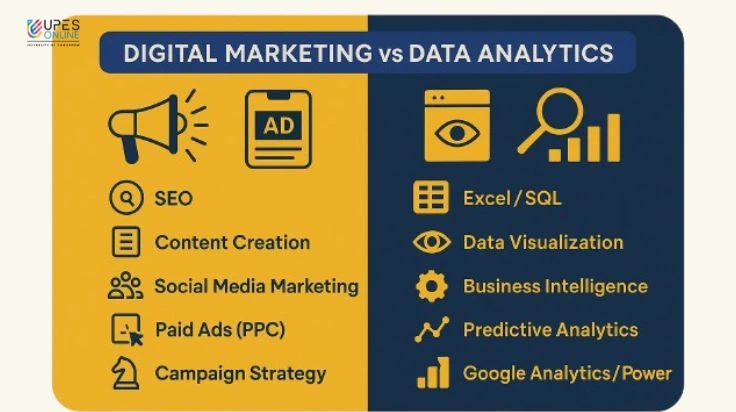The Invisible Force: How Supply Chains Keep The World Running

Supply chain management (SCM) plans and streamlines the movement of products from raw materials to finished goods delivered to customers. SCM is essential to guarantee the successful and efficient functioning of logistics and supply chain activities in today’s globalized and linked world.
A well-managed supply chain management process can result in cost savings, increased productivity, and improved customer satisfaction.
These are the various facets of supply chain management process and how to bifurcate departments to get the best supply chain optimization.

Functions of Supply Chain Management
Supply chain management encompasses numerous crucial responsibilities to ensure the effective movement of goods and services from suppliers to customers. The importance of supply chain management lies in its ability to improve the coordination, collaboration, and integration of various supply chain activities.
Planning and Forecasting:
This function involves the development of a strategy for managing demand and supply across the entire supply chain. This includes forecasting demand, planning production, and managing inventory levels.
Procurement:
The act of buying products and services from suppliers is known as procurement. It entails sourcing, contract negotiations, and supplier relationship management.
Production:
The process of turning raw resources into completed products is known as production. It includes controlling quality, managing production schedules, and streamlining production procedures.

Inventory Management:
Raw material, work-in-progress, and finished goods stock levels must be managed as part of inventory management. It entails the creation of inventory regulations, inventory management, and inventory level optimization.
Transportation:
The movement of products and services between locations is referred to as transportation. It involves the decision-making process for choosing modes of transportation, scheduling management, and cost optimization.
Warehousing:
Warehousing is the storage and management of goods and materials. It involves the administration of warehouse operations, including inventory management, order picking, and fulfillment.
Customer Service:
Customer service is the support provided to customers before, during, and after the sale of goods and services. It includes managing customer expectations, addressing customer complaints, and providing timely and accurate information.
By 2030, the market for supply chain management is expected to have grown by a CAGR of 10.9%, reaching USD 46,577.3 million.
Challenges in Supply Chain Management
Supply chain management faces several challenges that can impact its efficiency and effectiveness. What is meant by coordination in supply chain management?
To accomplish a single objective refers to integrating different supply chains activities like production, inventory management, transportation, and distribution. Significant obstacles that may have an impact on the coordination and effectiveness of supply chain management include:
Globalization:
Global trade has increased, which has led to supply chains being more complicated and dispersed geographically. Due to this, managing various suppliers, negotiating complex regulatory frameworks, and resolving cultural differences have become problematic.

Fragmentation:
Supply chains are often fragmented, with different parts managed by other organizations. This can lead to poor communication, lack of coordination, and difficulty achieving end-to-end visibility.
Outsourcing:
Many organizations outsource some or all of their supply chain optimization functions to third-party providers. While this can result in cost savings, it can also lead to challenges such as loss of control, difficulty in managing quality, and increased risk.
Uncertainty and Risk:
Supply chains are subject to risks such as natural disasters, geopolitical events, and disruptions. These risks can impact the timely delivery of goods and services, resulting in lost revenue and increased costs.
Sustainability:
Supply chain management must increasingly consider their operations’ environmental and social impacts. This includes reducing carbon emissions, ensuring ethical sourcing practices, and minimizing waste.
Supply chain optimization Examples
This includes reducing lead times, improving delivery accuracy, and minimizing inventory levels. Effective supply chain management can improve efficiency, increase profitability, and enhance customer satisfaction.
Strategies for Effective Supply Chain Management
Effective supply chain management requires various strategies to optimize the flow of goods and services across the supply chain. Why is optimizing the supply chain critical? It can improve operational efficiency, reduce costs, increase revenue, and enhance customer satisfaction. Some of the essential strategies for optimizing the supply chain include:
Agile Management:
Rapid response to supply, demand, or market changes is critical to agile management. This can increase customer responsiveness, shorten lead times, and improve flexibility.
Lean Management:
Lean management purges the supply chain of waste and non-value-added activities. This can boost productivity, cut expenses, and boost client happiness.
Risk Management:
Supply chain risks must be recognized and managed for effective risk management. It can involve creating backup plans, implementing them, and guaranteeing company continuity.
Green Supply Chain Management:
Incorporating environmental sustainability into the supply chain is known as “green supply chain management.” It can increase corporate social responsibility, reduce carbon emissions, and increase resource efficiency.
Collaboration and Integration:
Solid relationships between supply chain partners must be developed for collaboration and integration. Through the supply chain, it may result in enhanced coordination, communication, and efficiency.
Outsourcing Strategies:
Using third-party providers to manage some or all supply chain operations is a component of outsourcing techniques. Offshoring, nearshoring, and onshoring are all possible. However, careful vendor selection, transparent contracts, and efficient vendor management are necessary for effective outsourcing.
Summary
To summarize, supply chain management is critical in coordinating and optimizing the flow of goods and services across the supply chain and for effective management of the supply network.
UPES Online Admission Enquiry
Recommended Courses


Logistics and Supply Chain
PG Certification Program in Logistics and Supply Chain Management
View Program

Latest Blogs

Digital Marketing vs Data Analytics: Which Career Should You Choose?
Battle of skills: Digital Marketing vs Data Analytics—compare 2025 salaries, skills & job roles. Expert tips to choose your future career path!
Read MoreJun 15, 2025 I 12 mins
Why Should I Choose UPES Online? 10 Reasons Why
Explore why UPES Online stands out in online education. Learn about flexible learning, UGC-approved degrees, expert faculty & credible online programs. Enroll now!
Read MoreAug 21, 2025 I 5 min
Can Distance Learning Fully Replace Traditional MBA Education? Challenges & Limitations
Find out if distance learning can truly replace a traditional MBA. Learn key challenges, limitations, expert opinion & insights.
Read MoreSep 2, 2025 I 4 mins
Online MBA Capstone Projects and the Importance They Hold
Know the importance of online MBA capstone projects. Learn how they build real-world skills, boost career opportunities, & add industry value.
Read MoreSep 7, 2025 I 5 mins
UPES Online MBA vs Other Top Universities: Why Students Prefer UPES
Compare UPES Online MBA with other top universities. Know why students prefer UPES online over others. Check fee, flexibility, faculty, ROI, & career scope.
Read MoreOct 1, 2025 I 7 mins







